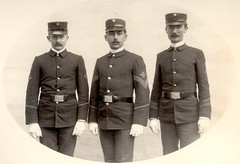AEM/caw
17 September 1959
Colonel Robert S Henry
2210 Russell Road
Alexandria, Virginia
Dear Colonel Henry:
The Armed Forces Institute of Pathology was born because of the Civil War, was a part of it, and is now a living symbol of the benefits that do occur in spite of the violence and misfortunes of war. The Institute will celebrate its hundredth anniversary during and concurrently with the Civil War Centennial.
Among our plans for the hundredth anniversary of the Institute is a history of its activities since its beginning in 1862. We have two vacancies which we would like to fill with the very best qualified persons available. Once vacancy is for a person qualified to do the actual writing. This person would be in the grade of a GS-14 and would be on par with a Doctor of Philosophy in History. The other vacancy is in the grade of GS-7 and is authorized for a person qualified as a research historian for screening the material on hand and furnishing it as needed to the writer.
Both of these jobs are permanent Civil Service positions but this would not prevent a person taking either of them for the duration of the job only.
The historian would be given full credit for authoring the publication. No advancement in grade is promised. The research historian would have every possibility of building that job into one of much higher grade as he or she becomes more familiar with the work.
Either job would offer the holder great possibilities for freelance writing and it is felt that sufficient and varied material is available to suggest the writing of more than one historical novel if a person were so inclined.
If you are at all interested or if you know of anyone, you would be doing me a very great favor if you would write me as soon as possible with full particulars.
Albert E Minns Jr
Colonel, MSC
Curator, Medical Museum
.JPG)
